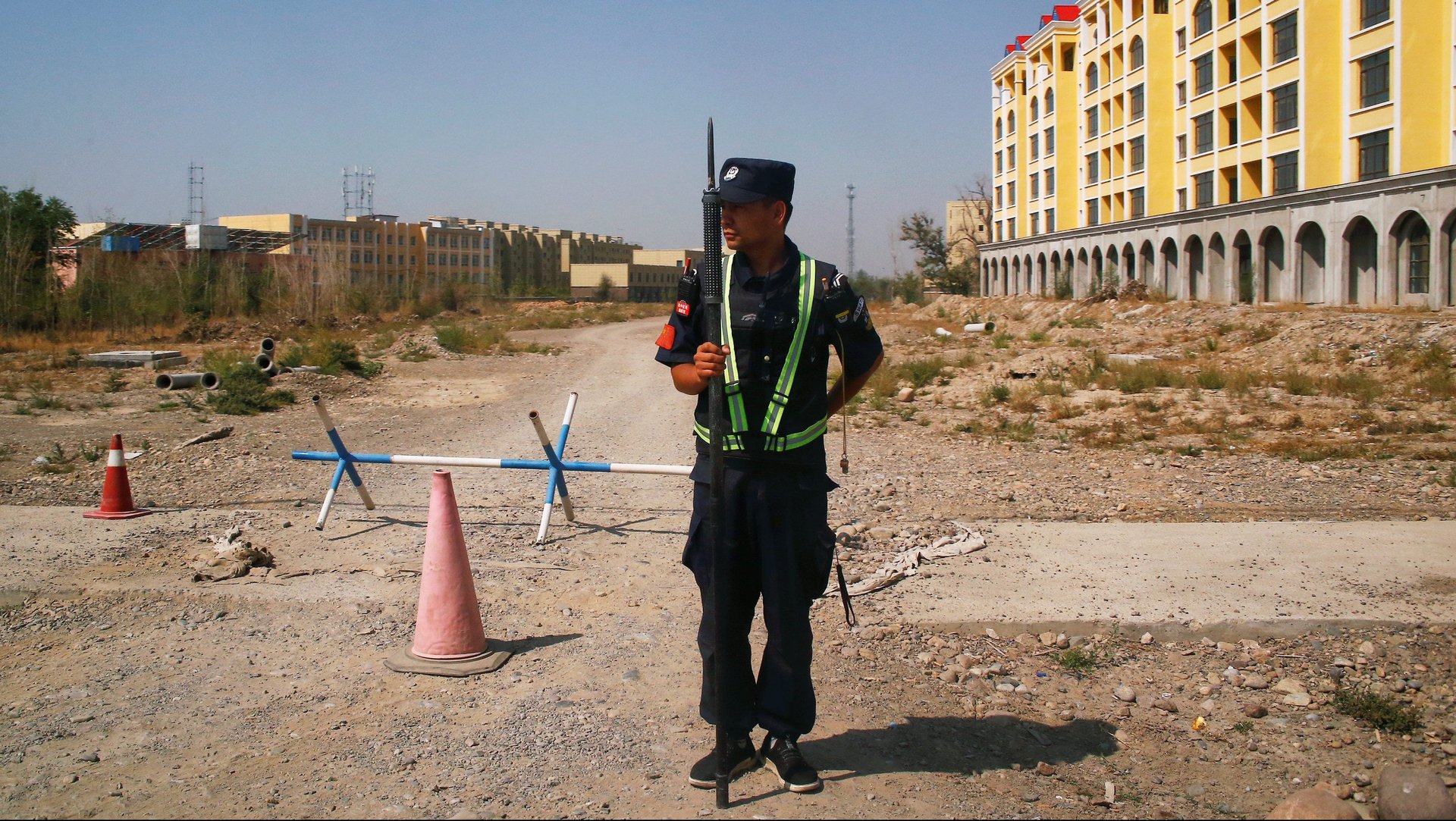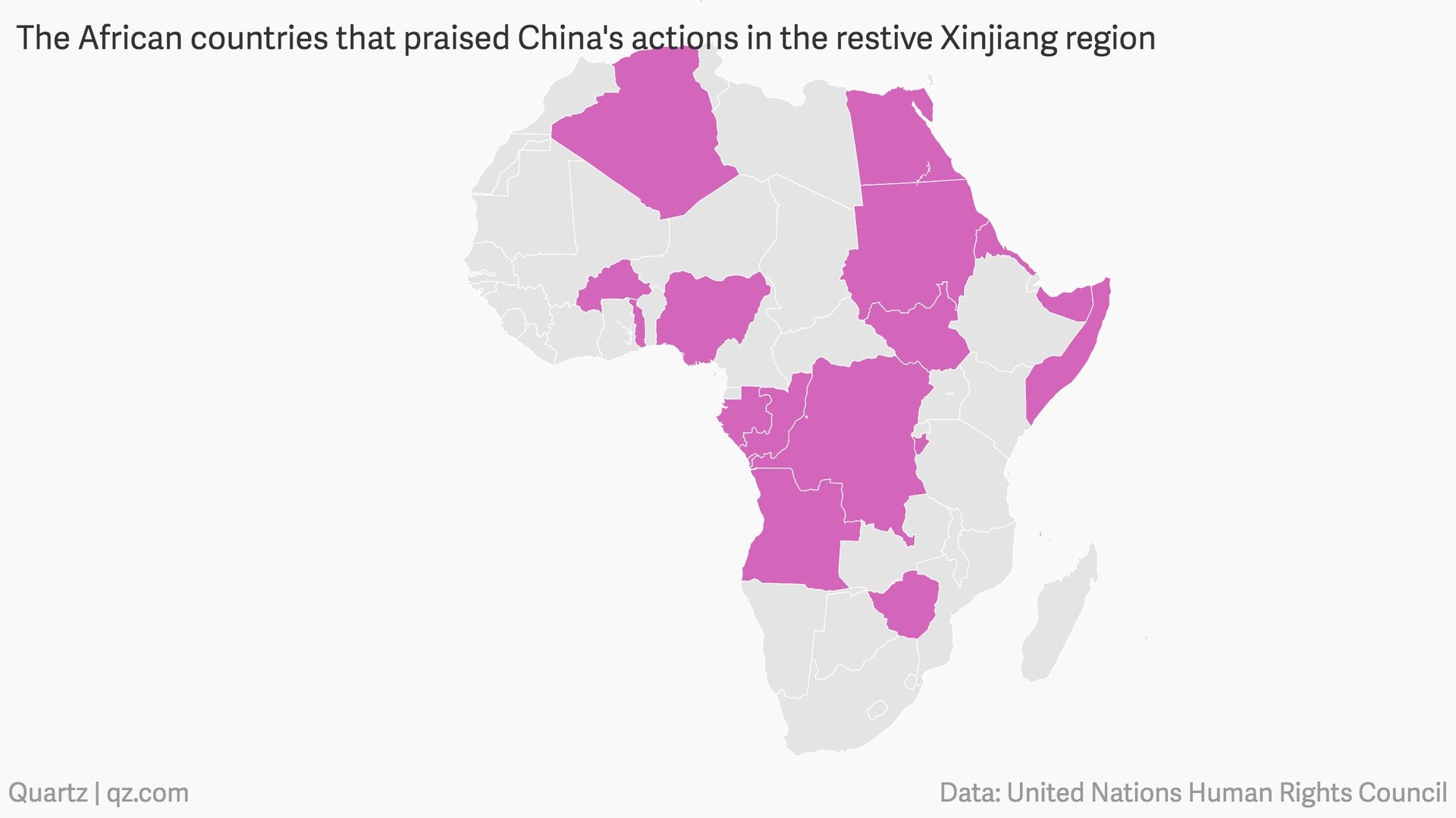Why these African countries are defending China’s mass detention of Muslims
China has for years faced international pressure over its mass detention of ethnic Uyghur Muslims in the north-western Xinjiang region under the guise of “re-education” against extremist thought. Those moves have now drawn support from 37 countries, including from over a dozen African states some of them with majority Muslim populations.


China has for years faced international pressure over its mass detention of ethnic Uyghur Muslims in the north-western Xinjiang region under the guise of “re-education” against extremist thought. Those moves have now drawn support from 37 countries, including from over a dozen African states some of them with majority Muslim populations.
In a letter to the United Nations Human Rights Council last week, ambassadors from African, Asian, and Latin American countries praised Beijing’s “remarkable achievements in the field of human rights.” The states said China faced terrorism, separatism and religious extremism in the restive Xinjiang region and noted the de-radicalization measures contributed to peace and security in the restive region.
Chinese authorities have repeatedly denied allegations of torture and brainwashing, saying the camps are “vocational training centers” aimed at combating terrorism and Islamic extremism.
The letter was signed by many global Muslim states including Qatar, Pakistan, and Saudi Arabia. But it also drew the signatures of 16 African countries like Burundi, Eritrea, and Nigeria, besides countries with large Muslim adherents including Sudan, Egypt, Algeria, and Somalia.
The statement was also a rejoinder to another one signed days earlier by more than 20 European and Western states including Britain, Germany, and Canada that rebuked China over the repression in Xinjiang. On Monday (July 15), Beijing praised the letter from the 37 states saying it was a retort to the way Western nations and foreign media covered the situation in Xinjiang.

The clash of letters underscores China’s growing influence in the United Nations and its push to advance its interests globally. This comes as threats to multilateralism grow and the UN faces increasing limitations and funding cuts from the Trump administration.
For African states, China’s surging influence in the global body arrives as Beijing expands its presence and investments in their nations. It’s a relationship that many African leaders see as crucial. Twice as many African presidents attended China’s Africa summit last year than they did the UN general assembly in New York.
The African states that signed the letter in support of the large-scale arbitrary detentions are also entangled economically with China. Some of them like Angola, Gabon, and Nigeria have secured billions of dollars in Chinese financing for infrastructure projects. A majority of these nations including Togo, Algeria, and Zimbabwe have also ratified the memorandum of understanding on the China-proposed Belt and Road Initiative, which aims to establish a trans-continental passage that connects China with Asia, Europe, and Africa.
Many of the countries that signed the letter are also major exporters of minerals and metals to China. These include nations like South Sudan, Angola, DR Congo, and the Republic of Congo, who are increasingly reliant on China for their petroleum, zinc, copper, and cobalt exports.
Some of the signatories to the letter have also been condemned by the United Nations and activists for their own human rights violations. Since president Abdel Fatah el-Sisi took power in Egypt, his administration has been accused of escalating a campaign of harassment and arrests against civil society groups, political opponents, and journalists.
The same is true of Eritrea where the one-party state of president Isaias Afwerki has overseen a notorious national conscription service likened to slavery, contributing to the wave of refugees fleeing the country. In February, the UN’s Human Rights Council highlighted scorched earth policies in South Sudan that “may amount to war crimes” which included rape and sexual violence against women and girls.
Sign up to the Quartz Africa Weekly Brief here for news and analysis on African business, tech and innovation in your inbox